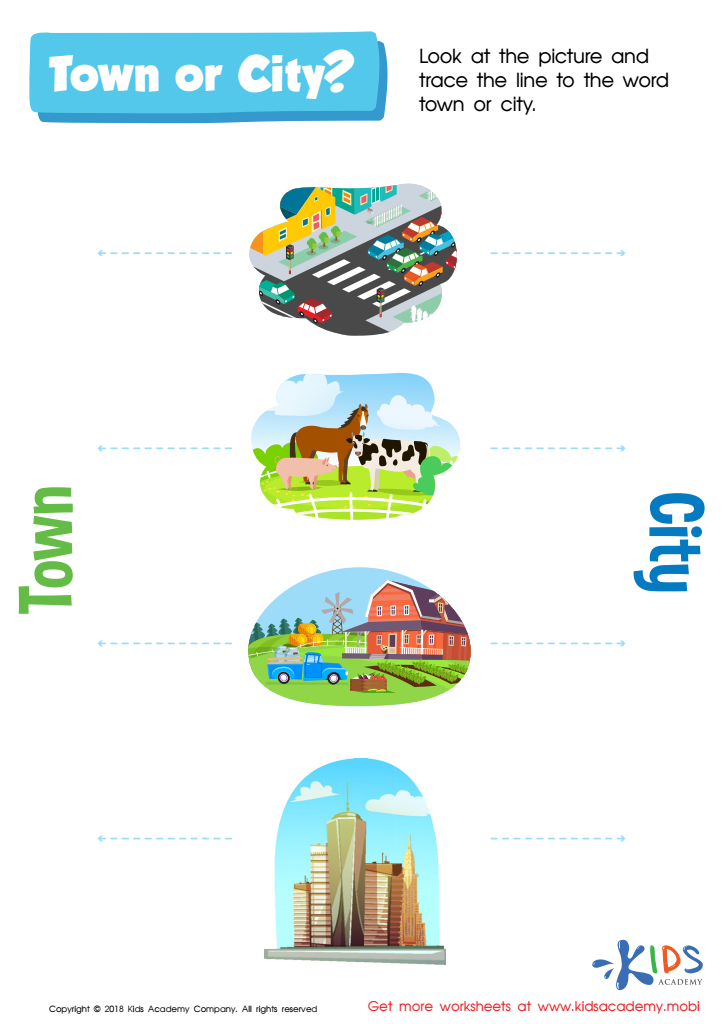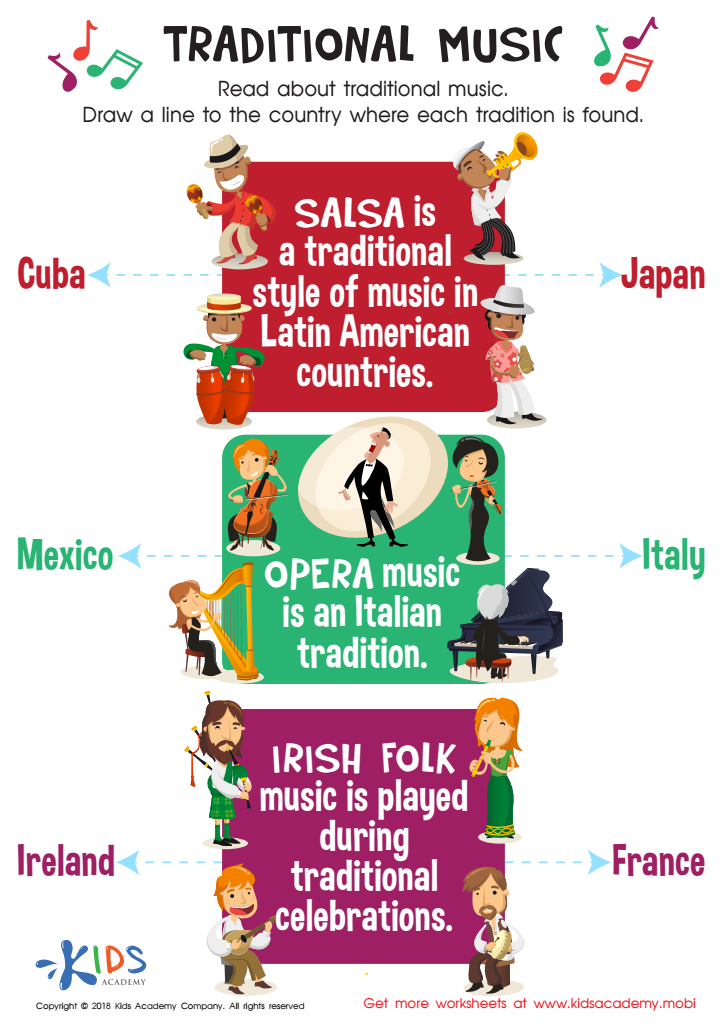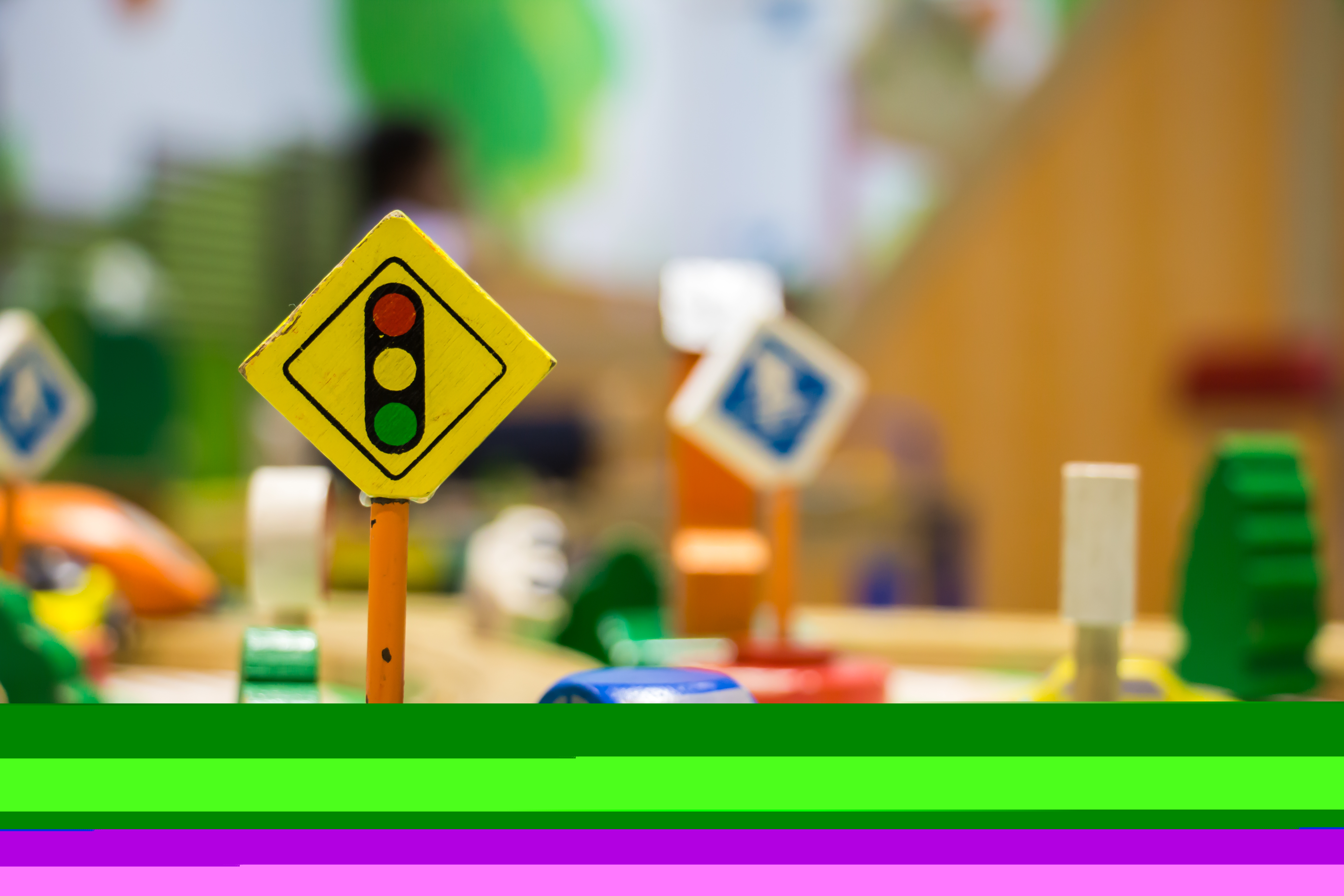Geography knowledge Normal Community Worksheets for Ages 3-7
3 filtered results
-
From - To
Introduce young learners to the exciting world of Geography with our Normal Community Worksheets, specially designed for ages 3-7. Our engaging activities help children explore their community and surroundings through fun, interactive tasks. These worksheets focus on developing essential Geography skills such as map reading, identifying local landmarks, and understanding community roles. Perfect for early learners, each worksheet encourages hands-on learning and critical thinking. Watch your child’s curiosity bloom as they discover their place in the world! Download our Geography knowledge worksheets today and make learning an adventure.


Town or City? Worksheet


Traditional Music Worksheet


Towns Worksheet
Geography knowledge for children aged 3-7 is essential for multiple reasons and should be of significant interest to parents and teachers. At this formative stage, young minds are incredibly receptive and capable of absorbing information with ease. Introducing geographical concepts through maps, globes, and playful exploration helps children better understand the world they live in, fostering a sense of curiosity and adventure.
Understanding geography aids in cognitive development by improving spatial thinking, problem-solving skills, and comprehension of distances, directions, and locations. It enhances linguistic abilities through new vocabulary related to places, environments, and cultural references. As children learn about varying climates, biomes, and physical features, they inherently develop respect for nature and an awareness of environmental issues.
Knowledge of geography promotes cultural appreciation, helping young learners recognize and respect diversity. This awareness cultivates empathy and social understanding by teaching them that despite physical and cultural differences, we all share the same planet.
In sum, teachers and parents serve as crucial facilitators in introducing geography meaningfully and engagingly. By investing in geographic education and incorporating it into daily activities, they lay a foundation that supports academic success, environmental stewardship, and cultural competency, shaping young minds into knowledgeable and compassionate world citizens.
 Assign to My Students
Assign to My Students
















